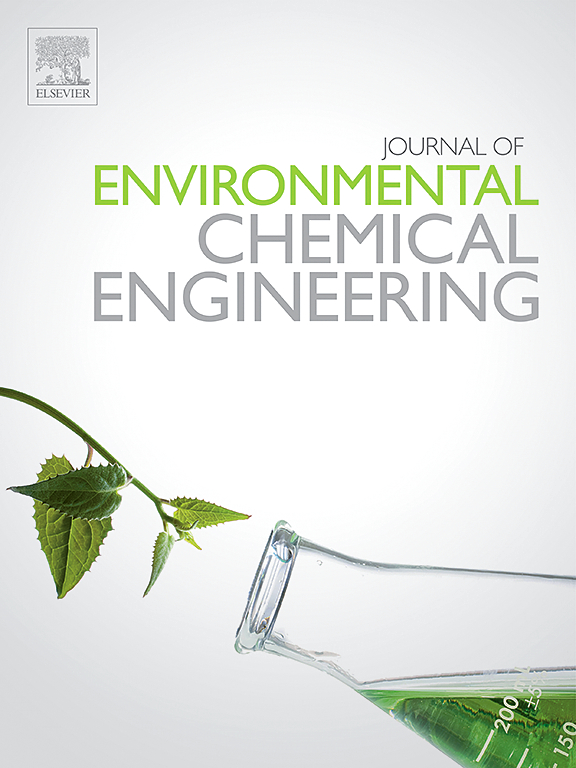Electrochemical phosphorus recovery from waste
IF 7.4
2区 工程技术
Q1 ENGINEERING, CHEMICAL
引用次数: 0
Abstract
Phosphorus is a crucial resource for global agricultural production and industrial development. However, its natural reserves are unevenly distributed and increasingly constrained. Meanwhile, phosphorus pollution from agricultural runoff and wastewater discharge seriously threatens ecosystems and exacerbates the greenhouse effect. As a result, the recovery and control of phosphorus has attracted widespread attention. Here, the distribution of different phosphorus forms in wastewater and solid wastes was comprehensively reviewed, and the mechanisms of existing phosphorus recovery technologies elucidated. Recent advances in electrochemical methods for phosphorus recovery from these waste streams are then highlighted, with a focus on fundamental principles and key influencing parameters. Various processes are systematically evaluated in terms of operational mechanisms, recovery efficiency, energy consumption, and product quality. Integrated electrochemical technologies capable of simultaneously recovering phosphorus, nitrogen, and heavy metals are summarized, and the potential integration of machine learning with electrochemical approaches is explored. Finally, the current challenges and future prospects of electrochemical phosphorus recovery technologies are discussed. This review aims to provide a valuable technical reference for the control of phosphorus pollution and the recovery of resources from waste streams.
废弃物中磷的电化学回收
磷是全球农业生产和工业发展的重要资源。然而,中国的自然保护区分布不均,且日益受到限制。同时,农业径流和废水排放的磷污染严重威胁生态系统,加剧了温室效应。因此,磷的回收与治理受到了广泛关注。本文综述了不同形态磷在废水和固体废物中的分布,并对现有磷回收技术的机理进行了阐述。然后重点介绍了从这些废物流中回收磷的电化学方法的最新进展,重点介绍了基本原理和关键影响参数。从运行机制、回收效率、能耗、产品质量等方面对各工序进行系统评价。总结了能够同时回收磷、氮和重金属的集成电化学技术,并探讨了机器学习与电化学方法的潜在集成。最后,讨论了电化学磷回收技术目前面临的挑战和未来的发展前景。本文综述旨在为磷污染的控制和废物流资源化利用提供有价值的技术参考。
本文章由计算机程序翻译,如有差异,请以英文原文为准。
求助全文
约1分钟内获得全文
求助全文
来源期刊

Journal of Environmental Chemical Engineering
Environmental Science-Pollution
CiteScore
11.40
自引率
6.50%
发文量
2017
审稿时长
27 days
期刊介绍:
The Journal of Environmental Chemical Engineering (JECE) serves as a platform for the dissemination of original and innovative research focusing on the advancement of environmentally-friendly, sustainable technologies. JECE emphasizes the transition towards a carbon-neutral circular economy and a self-sufficient bio-based economy. Topics covered include soil, water, wastewater, and air decontamination; pollution monitoring, prevention, and control; advanced analytics, sensors, impact and risk assessment methodologies in environmental chemical engineering; resource recovery (water, nutrients, materials, energy); industrial ecology; valorization of waste streams; waste management (including e-waste); climate-water-energy-food nexus; novel materials for environmental, chemical, and energy applications; sustainability and environmental safety; water digitalization, water data science, and machine learning; process integration and intensification; recent developments in green chemistry for synthesis, catalysis, and energy; and original research on contaminants of emerging concern, persistent chemicals, and priority substances, including microplastics, nanoplastics, nanomaterials, micropollutants, antimicrobial resistance genes, and emerging pathogens (viruses, bacteria, parasites) of environmental significance.
 求助内容:
求助内容: 应助结果提醒方式:
应助结果提醒方式:


